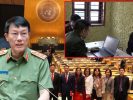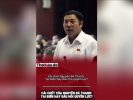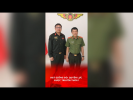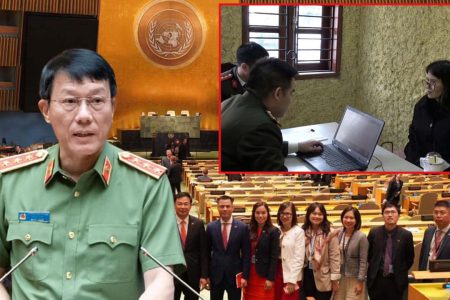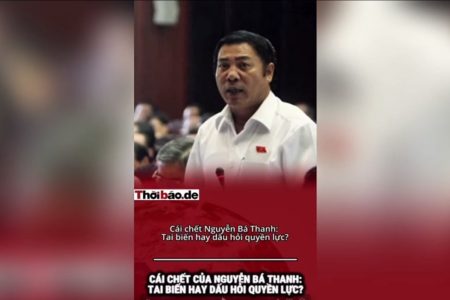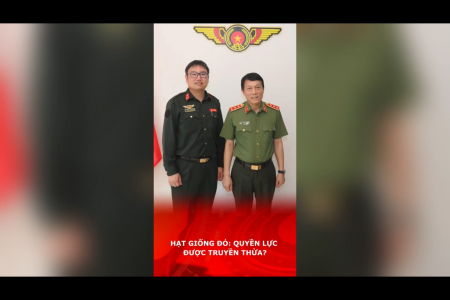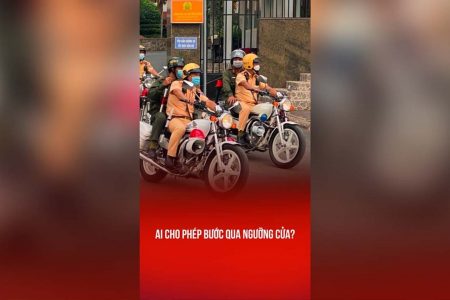
The Vietnamese government is adding laws to prevent individuals from investing in real estate abroad in order to obtain foreign passports, after a series of scandalous cases of National Assembly’s members.
According to Nguoi Lao Dong on September 27, 2020, a draft Decree on foreign investment, which is being consulted by the Ministry of Planning and Investment, has added the conditions for. real estate investment in foreign countries.
The objective of this amendment is „only enterprises established under the provisions of the Law on Vietnamese Enterprises are allowed to invest“ in foreign real estate.
This is to prevent individuals from investing abroad and then receiving immigration cards and foreign passports.
The article also quotes lawyer Nguyen Van Hau, vice chairman of the Ho Chi Minh City Lawyers Association, outlining the need „to have strict regulations sanctions on investment abroad for cadres and civil servants, officer…“
According to him, these are „objects that can easily take advantage of the policy to make profits and transfer assets abroad.“
Previous comments said that foreign citizenship not only helps „investors“ have the right to travel around the world with a „powerful“ passport much more than the Socialist Republic of Vietnam passport, with which the holders must apply for a visa with very difficulty in entering many richer countries.
Along with getting foreign visas easily, having foreign passport means you can enjoy other privileges such as a good education and civilized healthcare without having to bribe.
However, the article in Nguoi Lao Dong also has the title „It is not easy to stop state officials from buying a foreign estate to obtaining citizenship“ because it is difficult to control money and assets in the name of other people abroad.
The article also said that according to the official data, from 2015 up to now, the number of individual investors from Vietnam bringing money abroad increased, while investment of state-owned enterprises decreased.
Author Thoi Nguyen from London, who directly worked as a British settlement service for Vietnamese, wrote on BBC News Vietnamese recently that:
“As for the group, when economic conditions permit, many Vietnamese families initially let their children study abroad, and then the parents follow their footing to settle down.
The number of Vietnamese studying abroad in the West has increased dramatically. The phenomenon of studying abroad has been emerging for more than 15 years, and many international students go to school and find ways to stay. The number of overseas Vietnamese has increased gradually in the form of family reunification and because of the overseas students‘ stay.
Reply to BBC News Vietnamese on August 29, 2020 on the occasion of Vietnamese legislator Pham Phu Quóc obtaining Cyprus passport by investment way, Mr. Dominic Volek, who is also Asia Director of Henley & Partners, specializing in migration services said Vietnam is one of the strongest growth markets for his company.
Mr. Volek confirmed „in order to have Cyprus citizenship for couples, applicants need to invest EUR2 million and donate EUR200,000.”
The question that the Vietnamese press is now posing is where the huge sums of money came from, have they paid their income taxes and how they sent them abroad.
Regulatory and practical
Currently, the Vietnamese government and the ruling Communist Party have many very detailed regulations to control their bureaucracy, civil servants and 5 million party members.
In 2017, a provision of the Communist Party of Vietnam outlined dozens of prohibitions against Party members, including quite strict things about foreign relations, the issue is still considered „sensitive“ from the perspective of socialist politics in Vietnam.
Regulation 102, published in early 2018, specifies a number of prohibitions such as:
* Self or act to allow parents, spouses, children, siblings, siblings to travel, visit, study, or cure in the country or abroad with the sponsorship of the foreign organizations and individuals without permission (Article 26);
* Having a child married to a foreigner or an overseas Vietnamese who has political attitudes against the Party and State. (Article 25)
However, at the same time, there were officials and party members not only going abroad to do business but also buying foreign citizenship.
For example, Communist Party member and National Assembly member Mr. Pham Phu Quoc received Cypriot citizenship (2018) with a testimony that he was sponsored by his wife and children.
Although Mr. Quoc was dismissed from his position in the National Assembly, the question raised by public opinion is how to prevent similar cases with other officials.
Before Mr. Pham Phu Quoc, there were National Assembly members Nguyen Van Than with Polish nationality (after he declared that he had quit), and Nguyen Thi Nguyet Huong had Maltese nationality, she was dismissed in 2016.
As early as 5-6 years ago, the phenomenon of officials’ transfering large assets abroad was considered by the Vietnamese press to be quite popular and „very difficult to take“ money back to Vietnam.
Tuoi Tre newspaper in September 2016 quoted an expert in the remittance field talking about the diversity and creativity in transferring assets from Vietnam to abroad.
Right from that moment, in addition to „transferring money by investing, buying stocks„, there is also a way to „send children to study abroad in the country they intend to settle down …“
Thus, this phenomenon has happened quite a long time ago.
The new thing is that the statement of lawyer Nguyen Van Hau now raises the question of whether or not Vietnamese police and military officers participate in the „migration“ routes by investing abroad, or transfering assets to foreign countries in order to have a foreign passport.
The Vietnamese press has not found military and police officers involving in this issue.
However, there was a senior security officer who committed a crime and was revealed to have attempted to buy a US passport.
Vietnam newspaper in 2019 and early 2020 said security lieutenant Phan Van Anh Vu (Vu Nhôm), who was arrested and jailed in the 2018 case, claimed that he had spent „$700,000″ to ask for US citizenship for his family but he was cheated.
Thoibao.de (Translated)

















